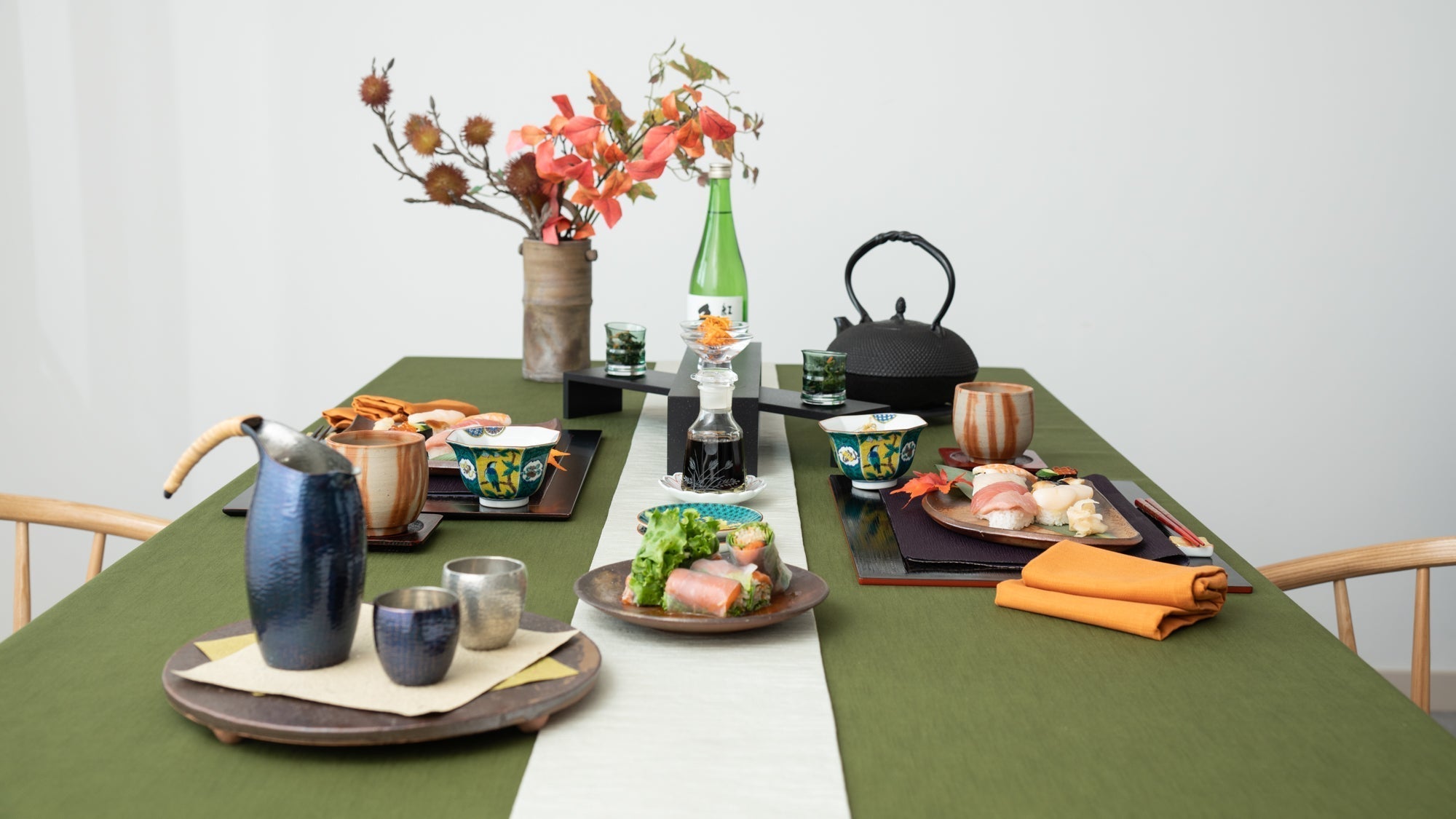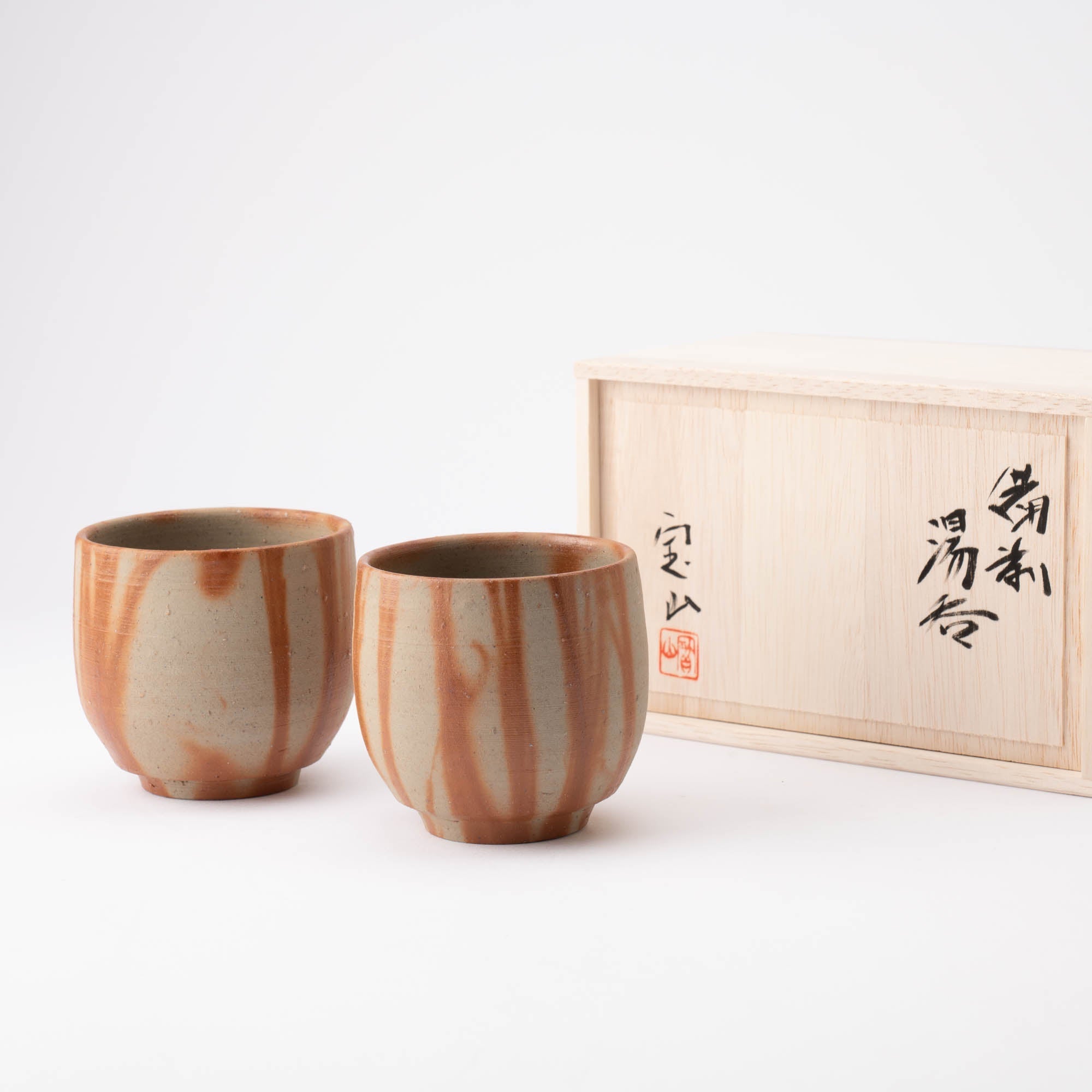
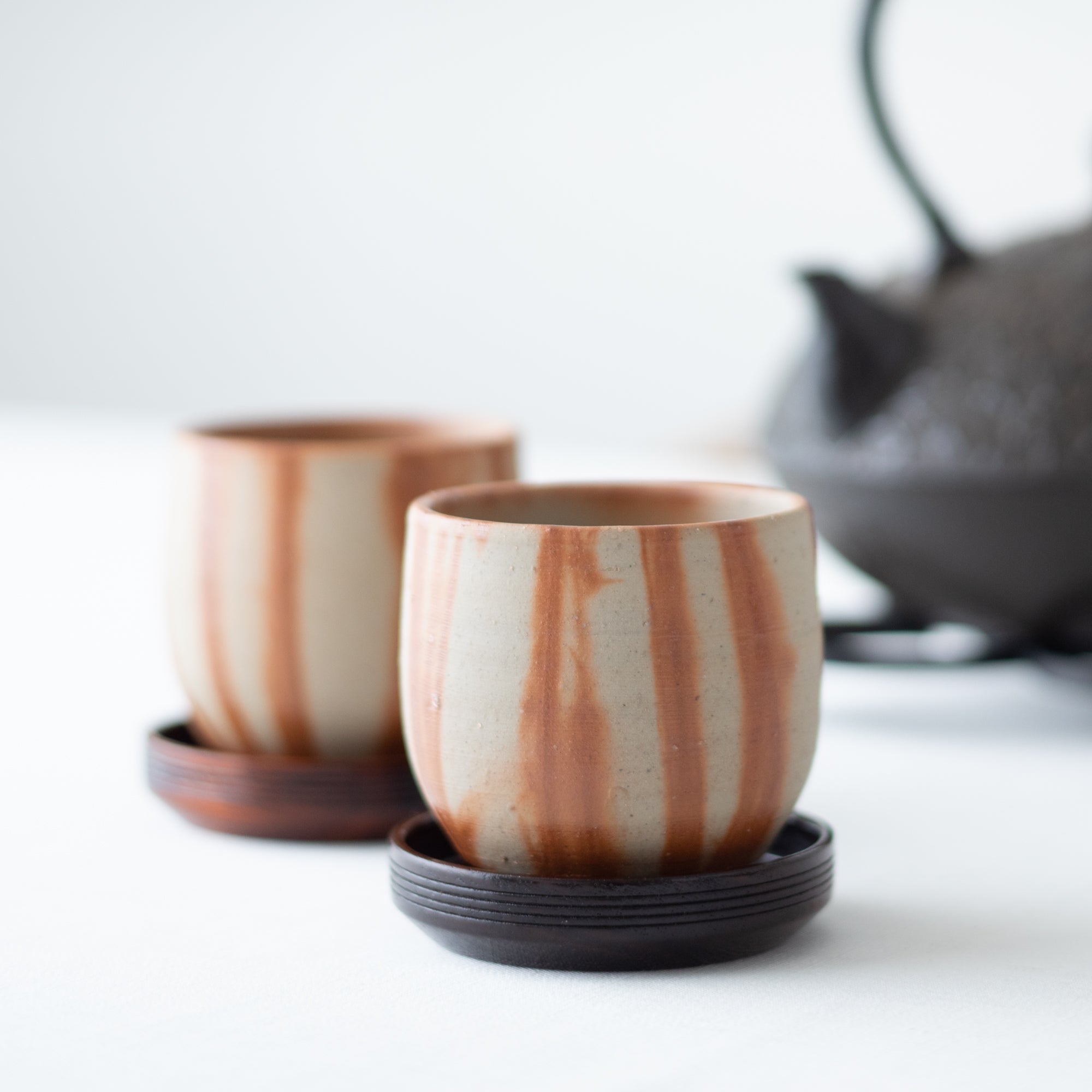
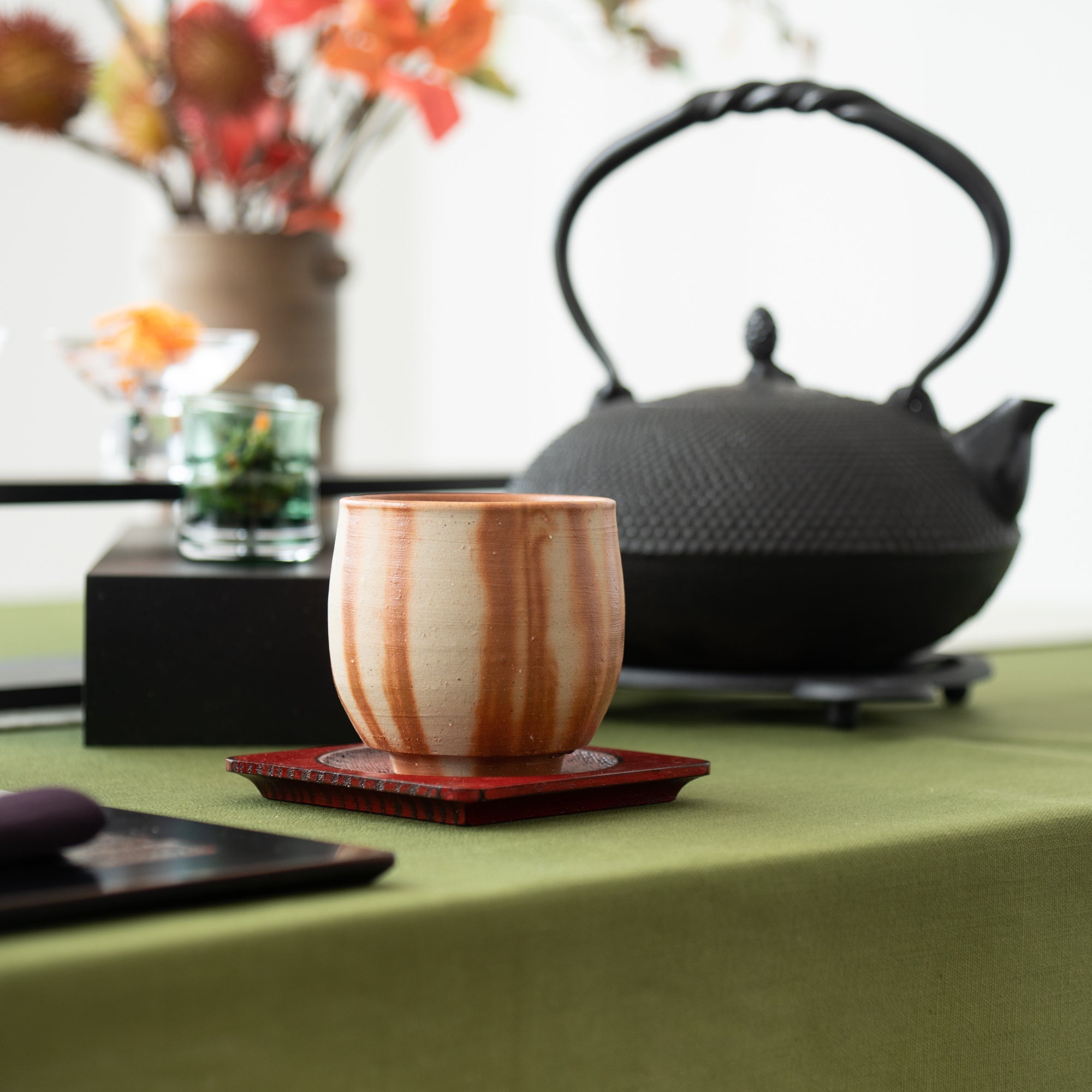
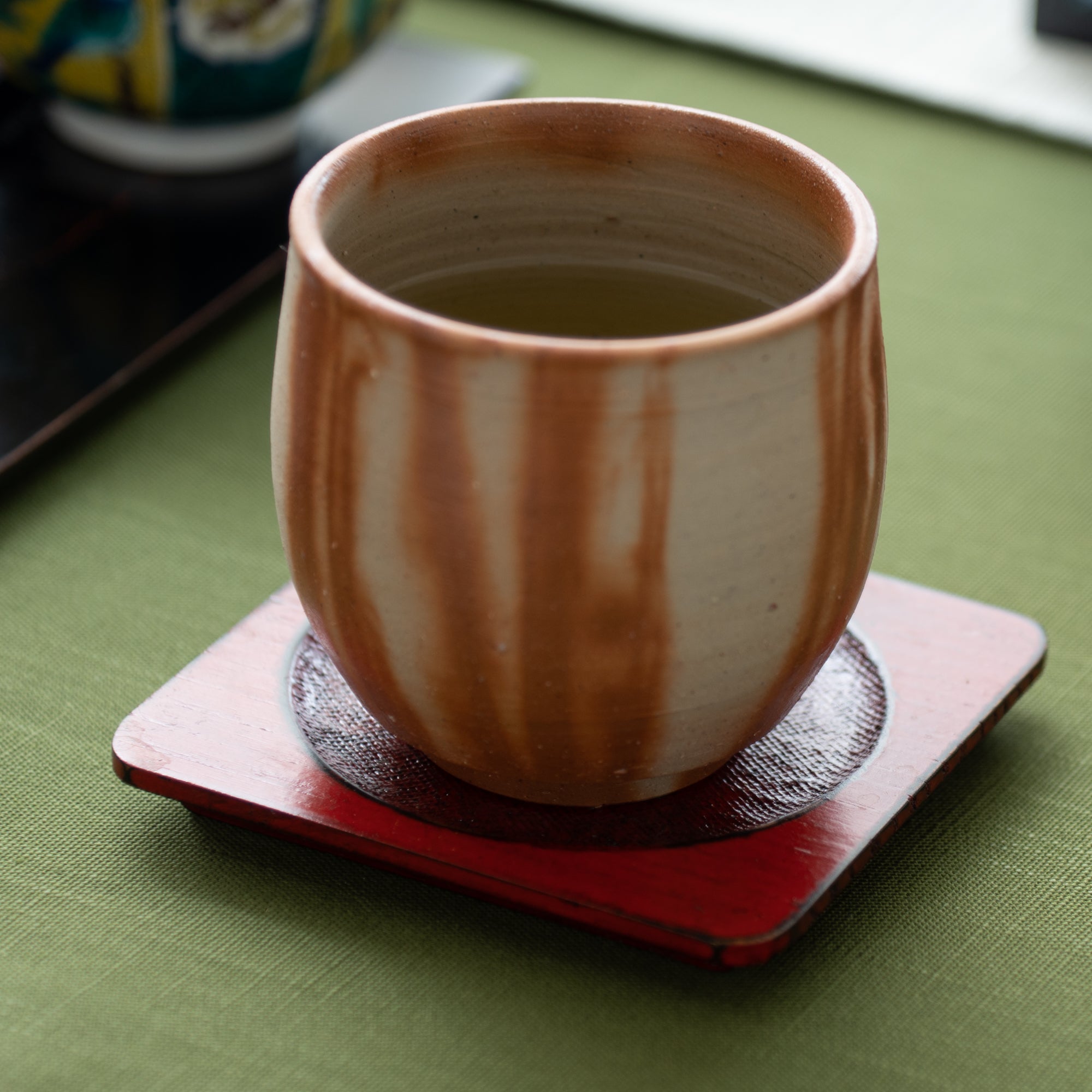
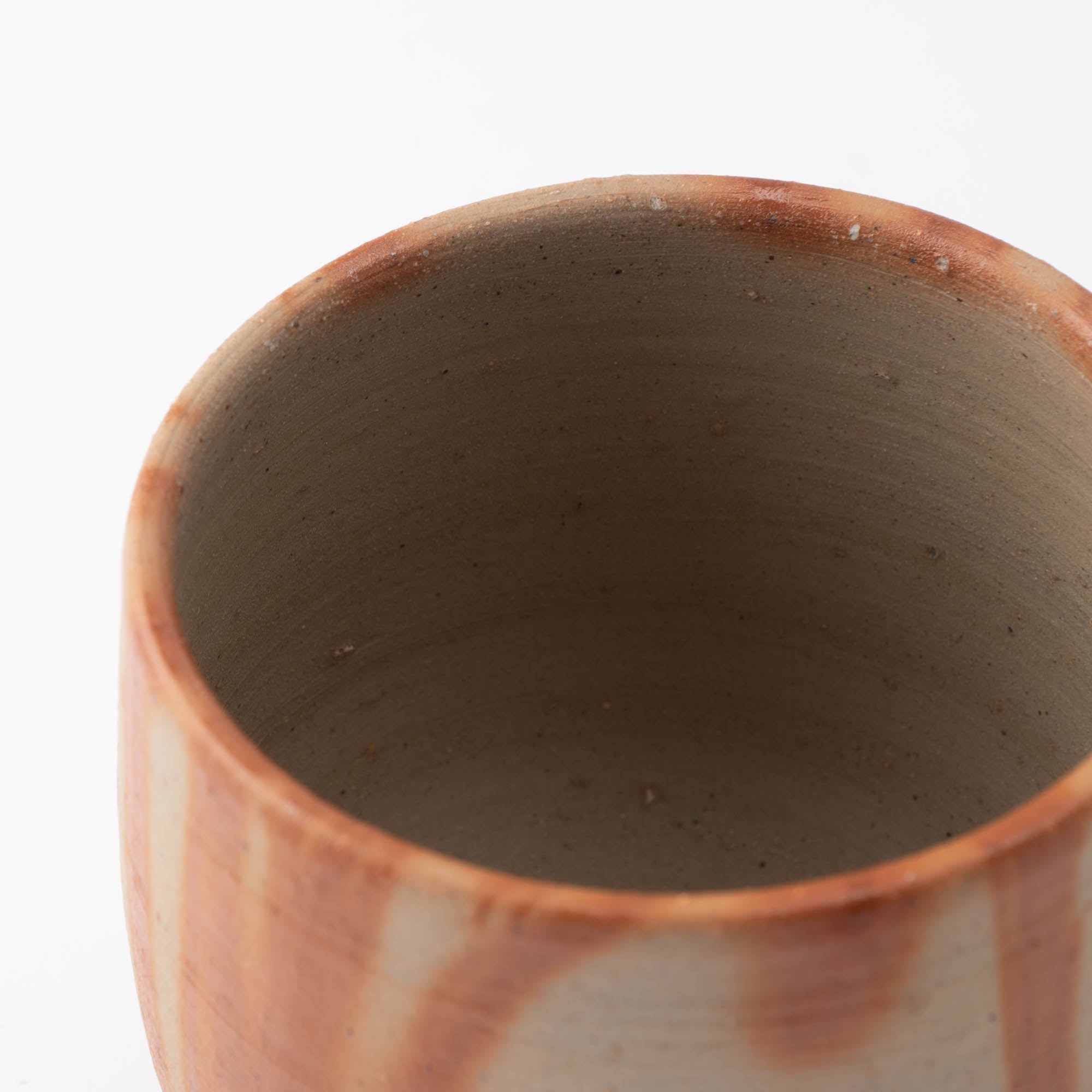
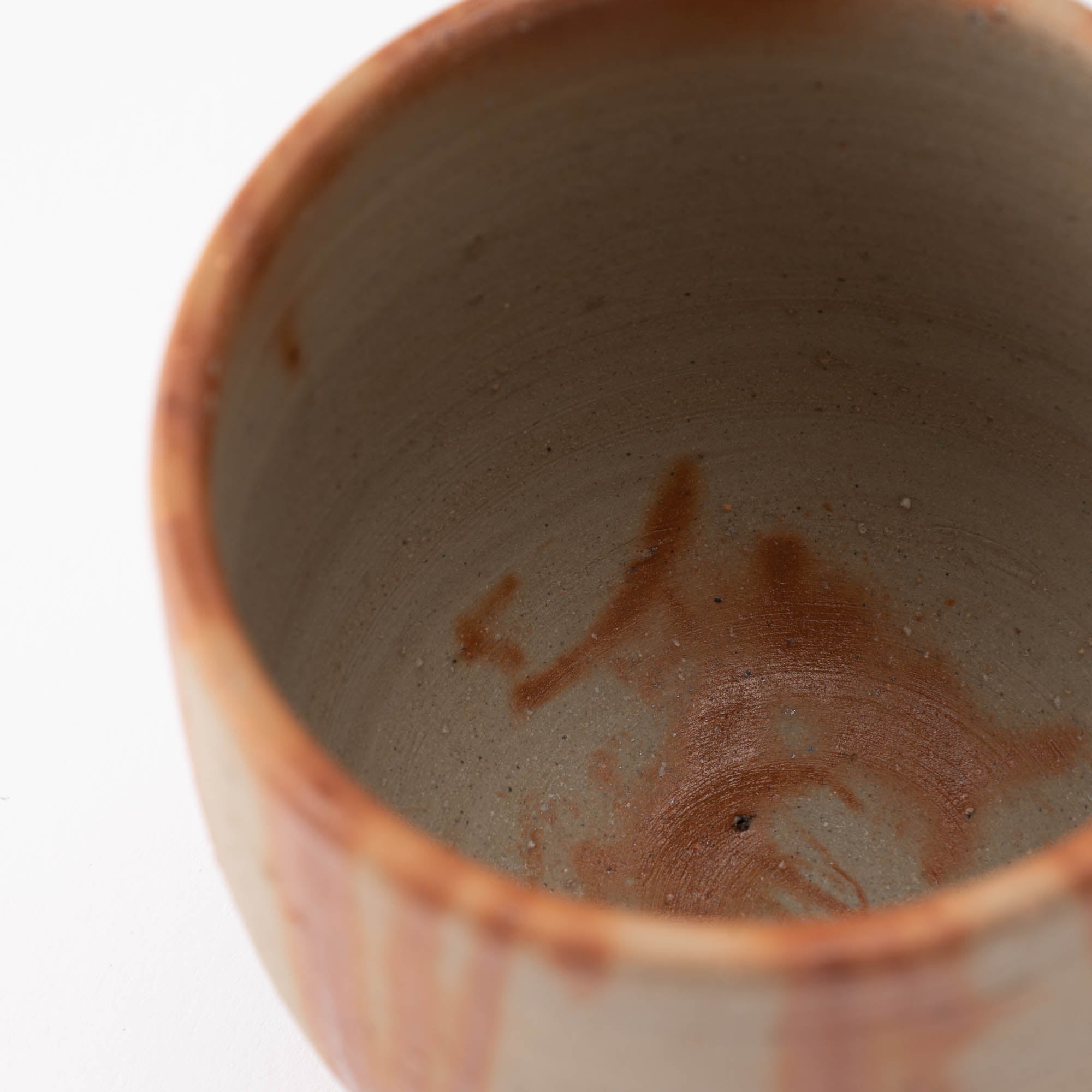
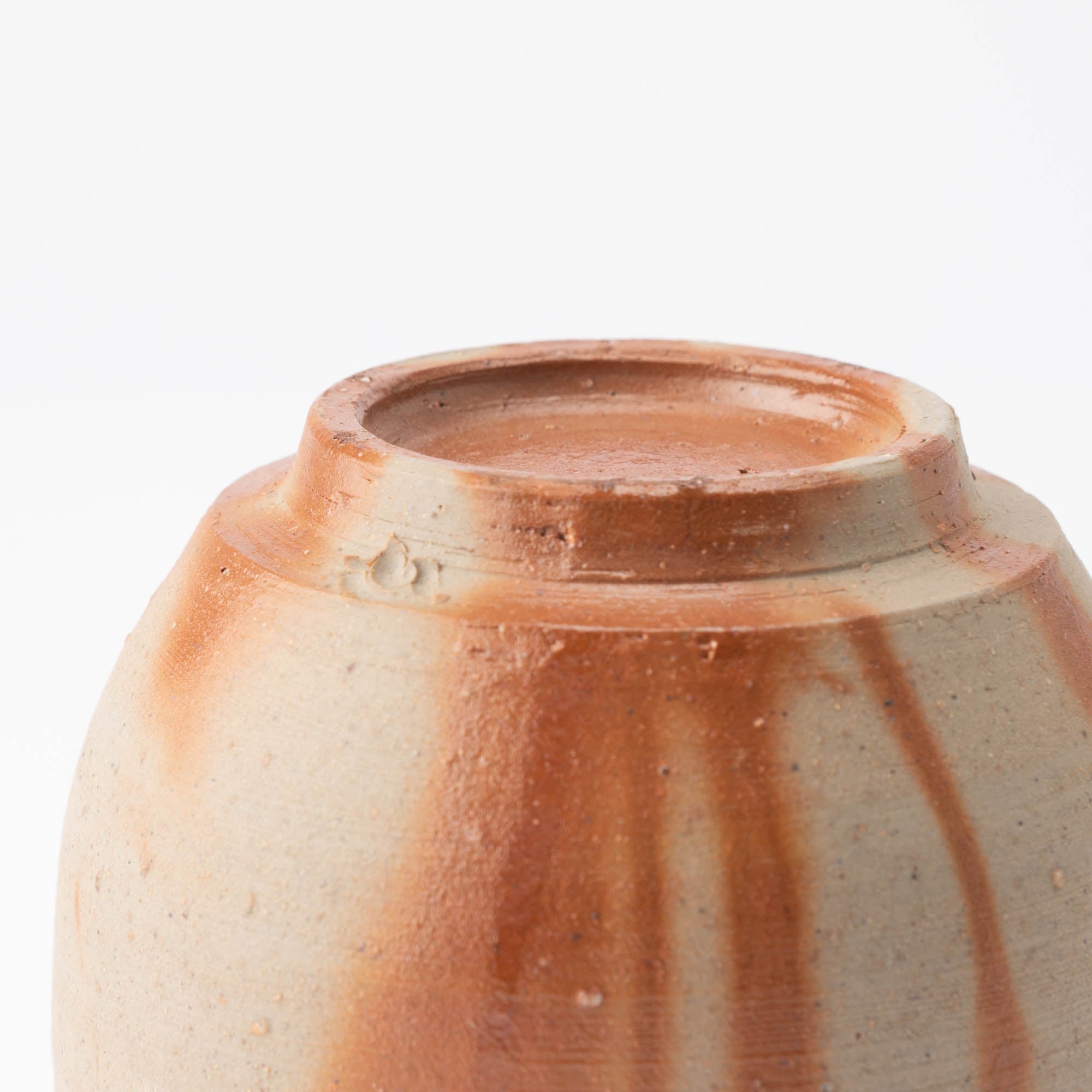
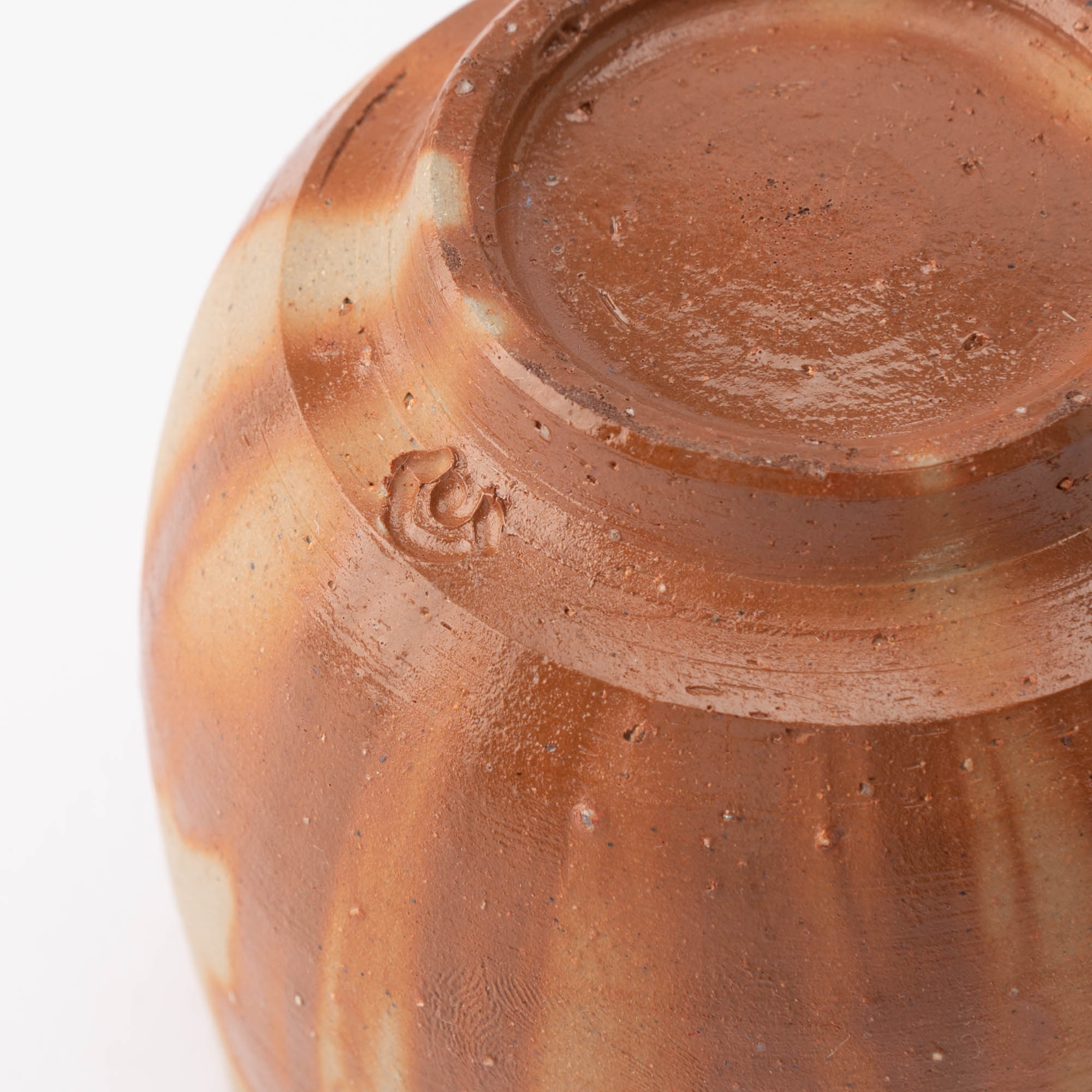
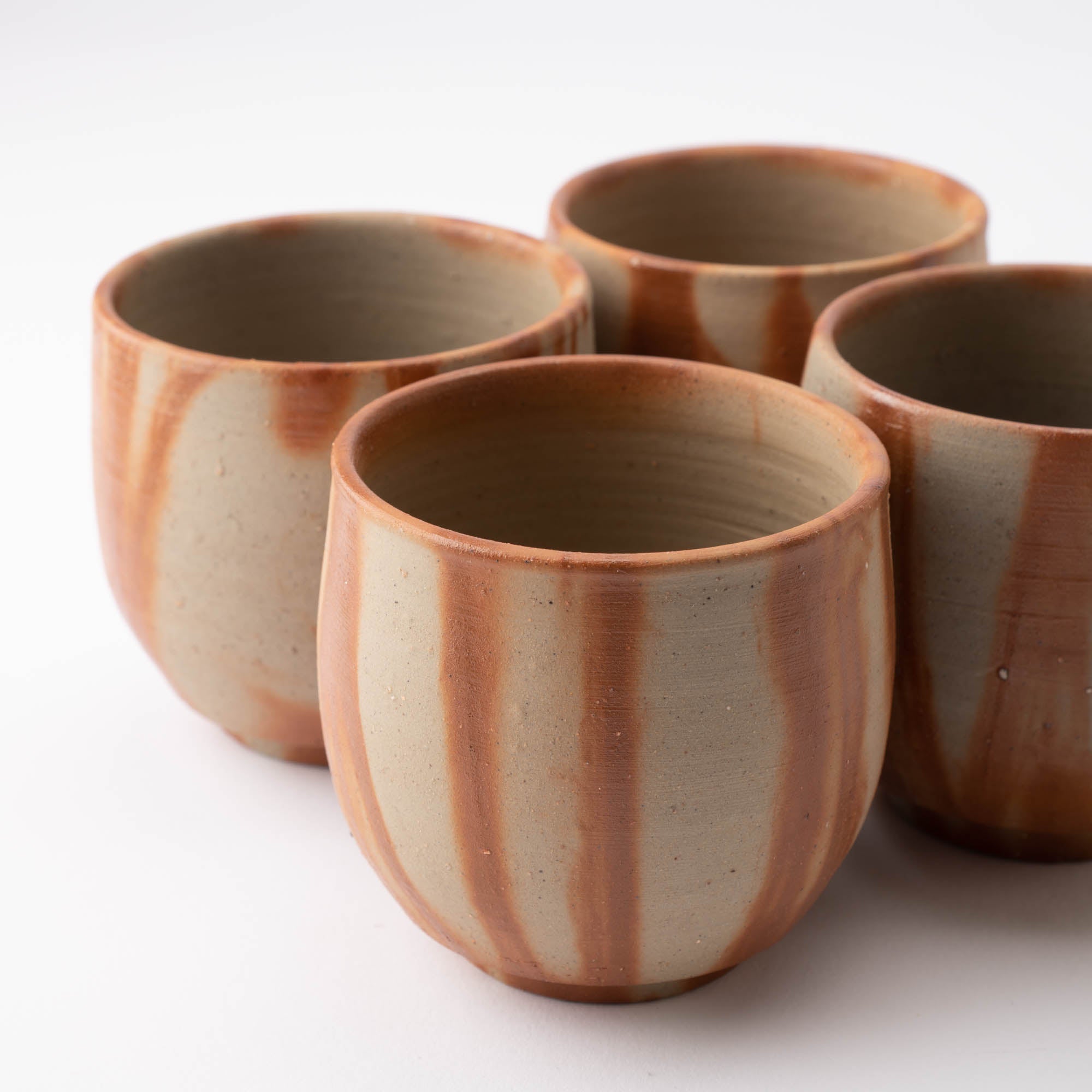
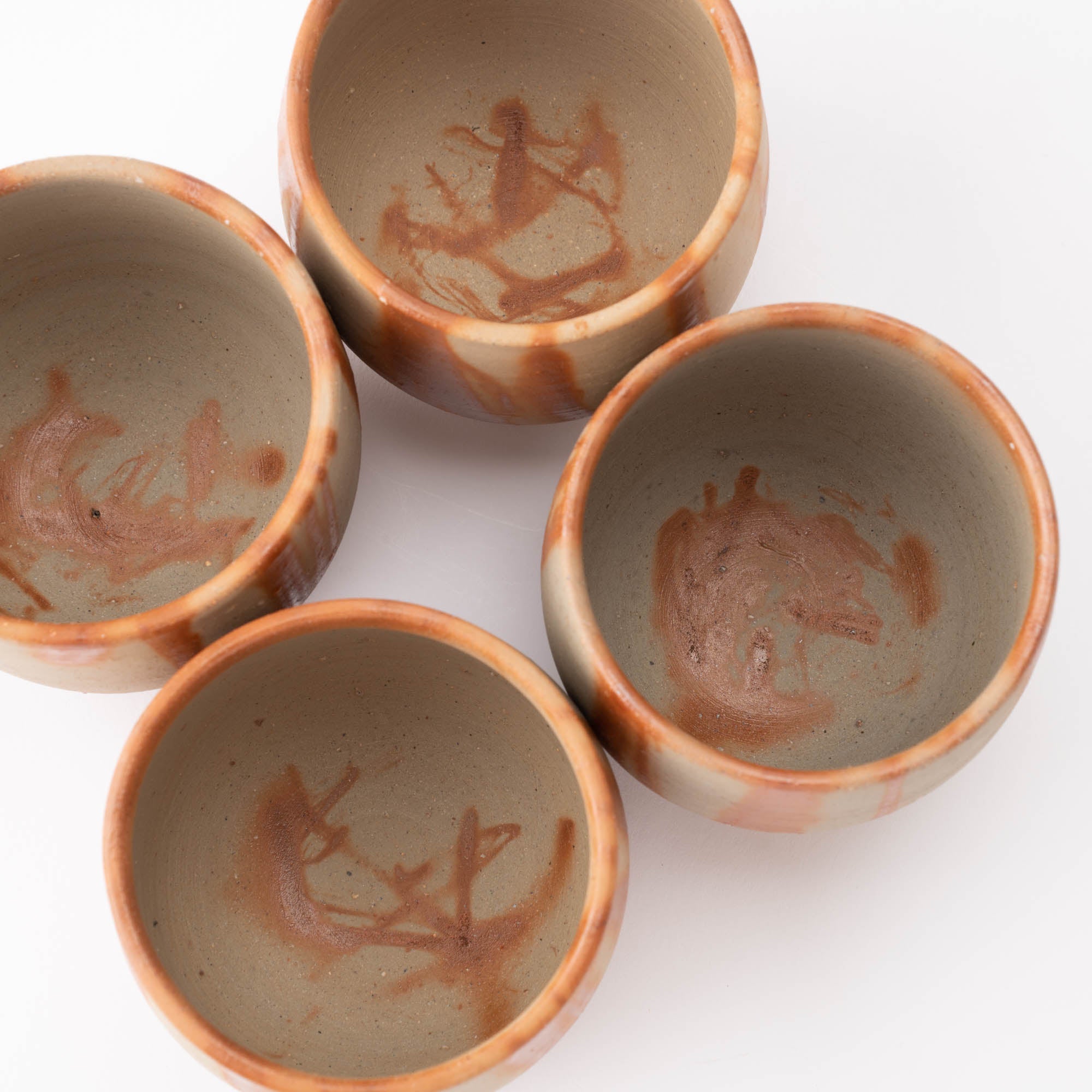
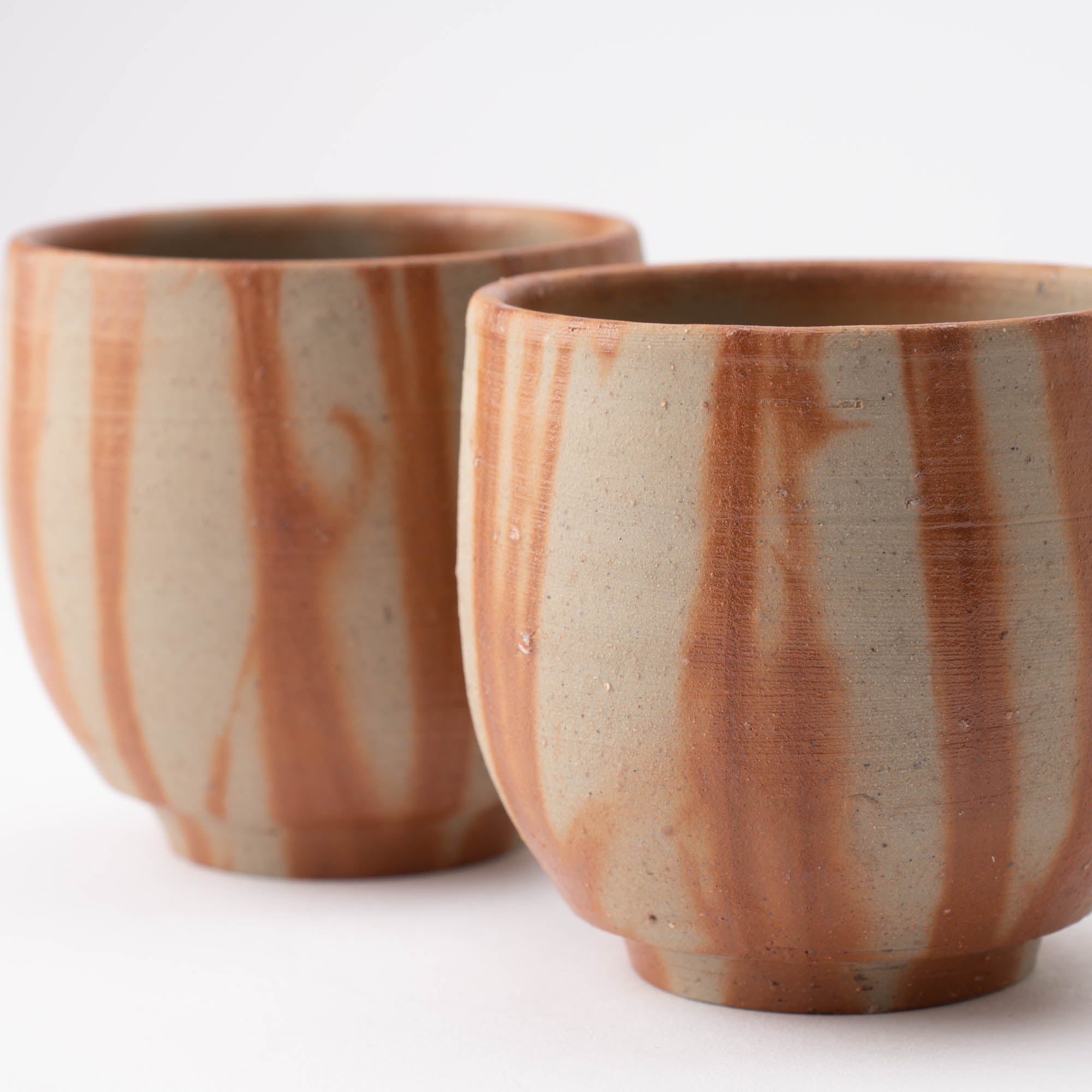
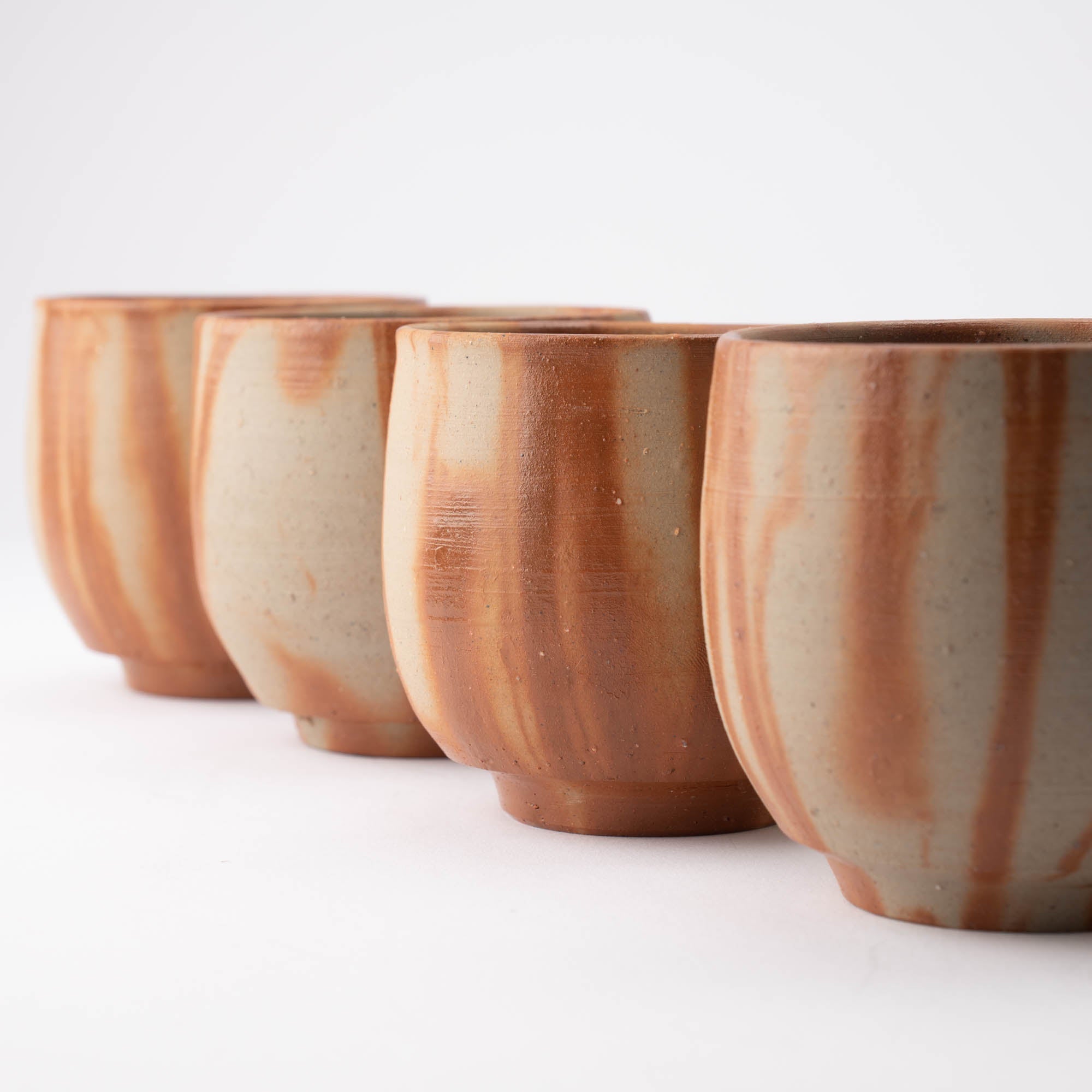
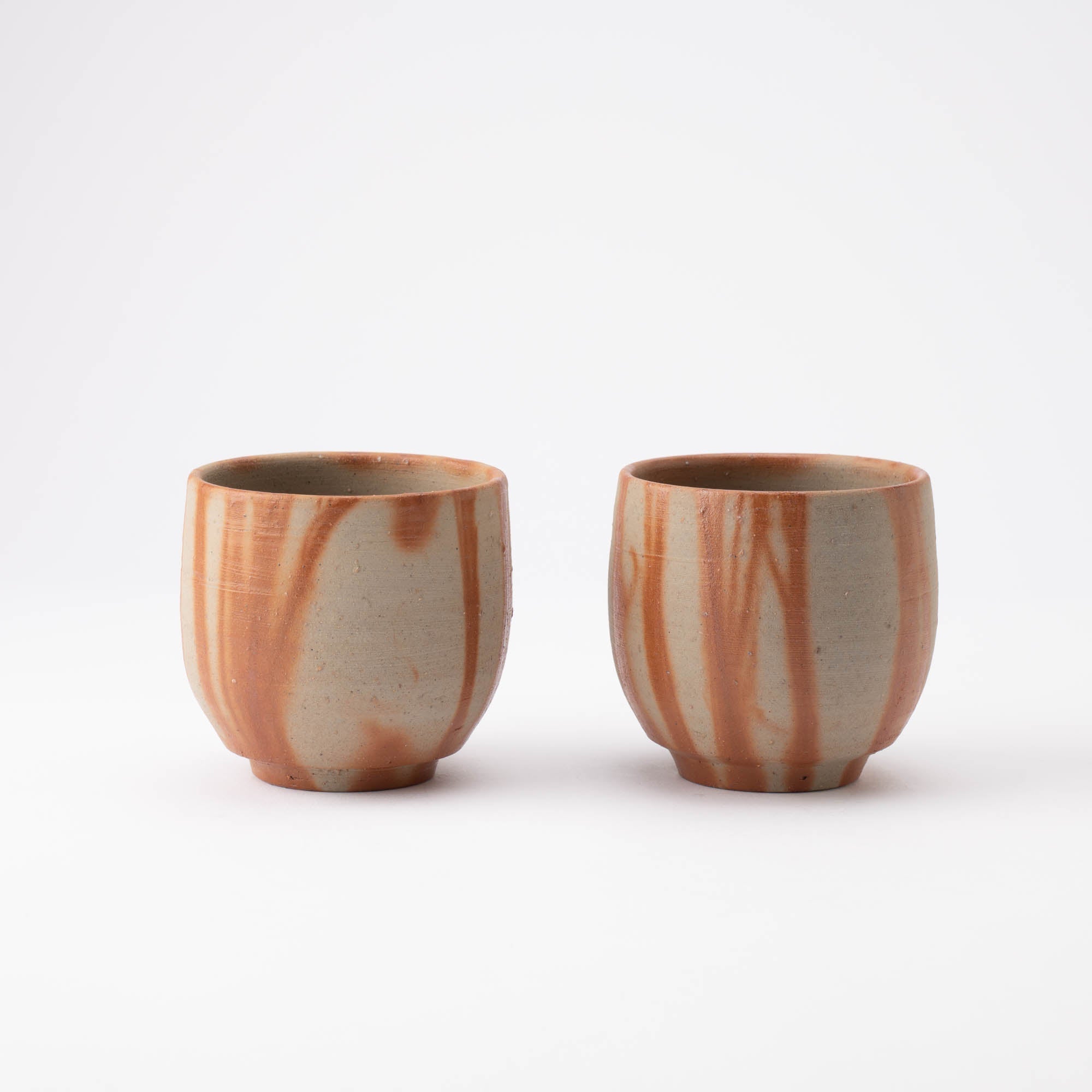
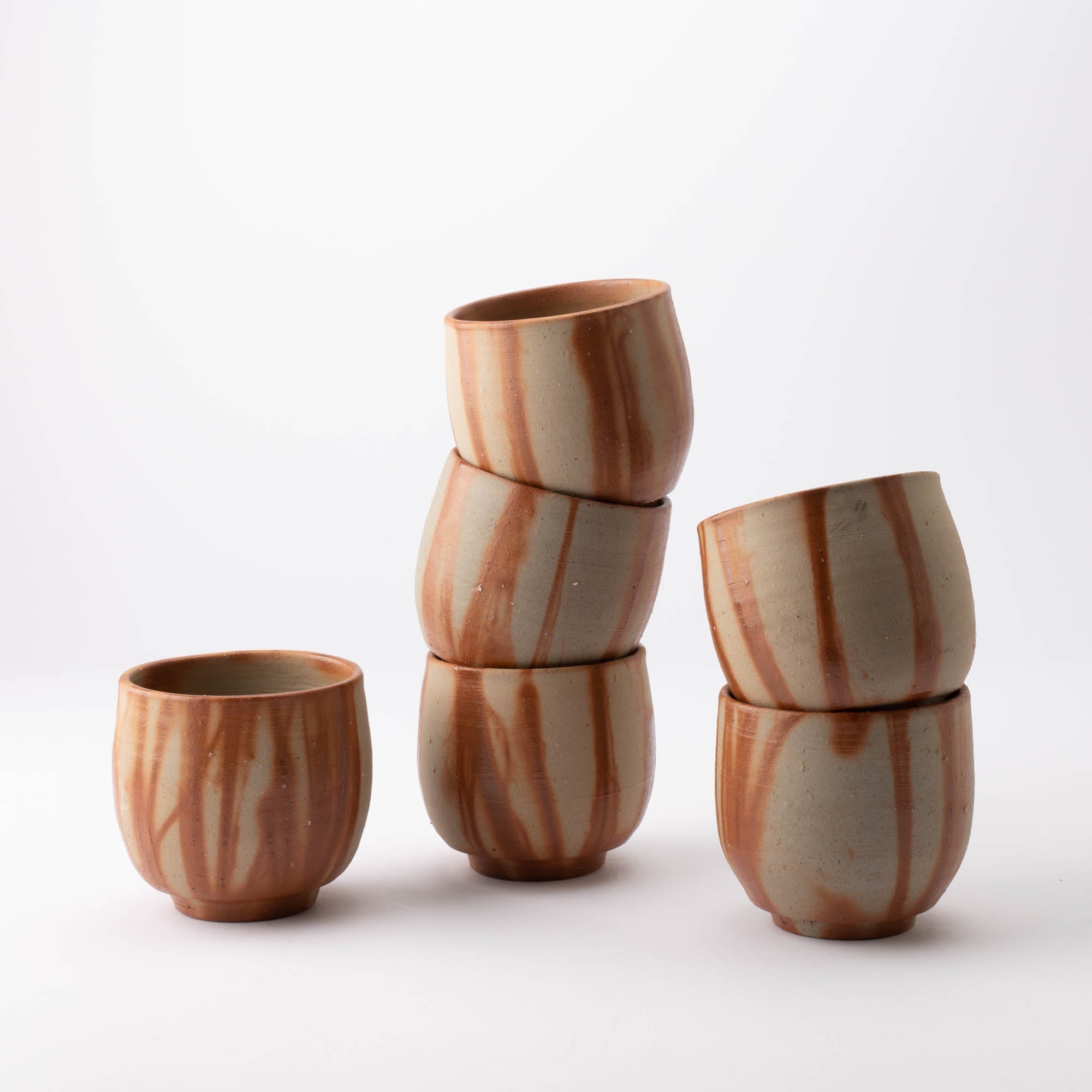
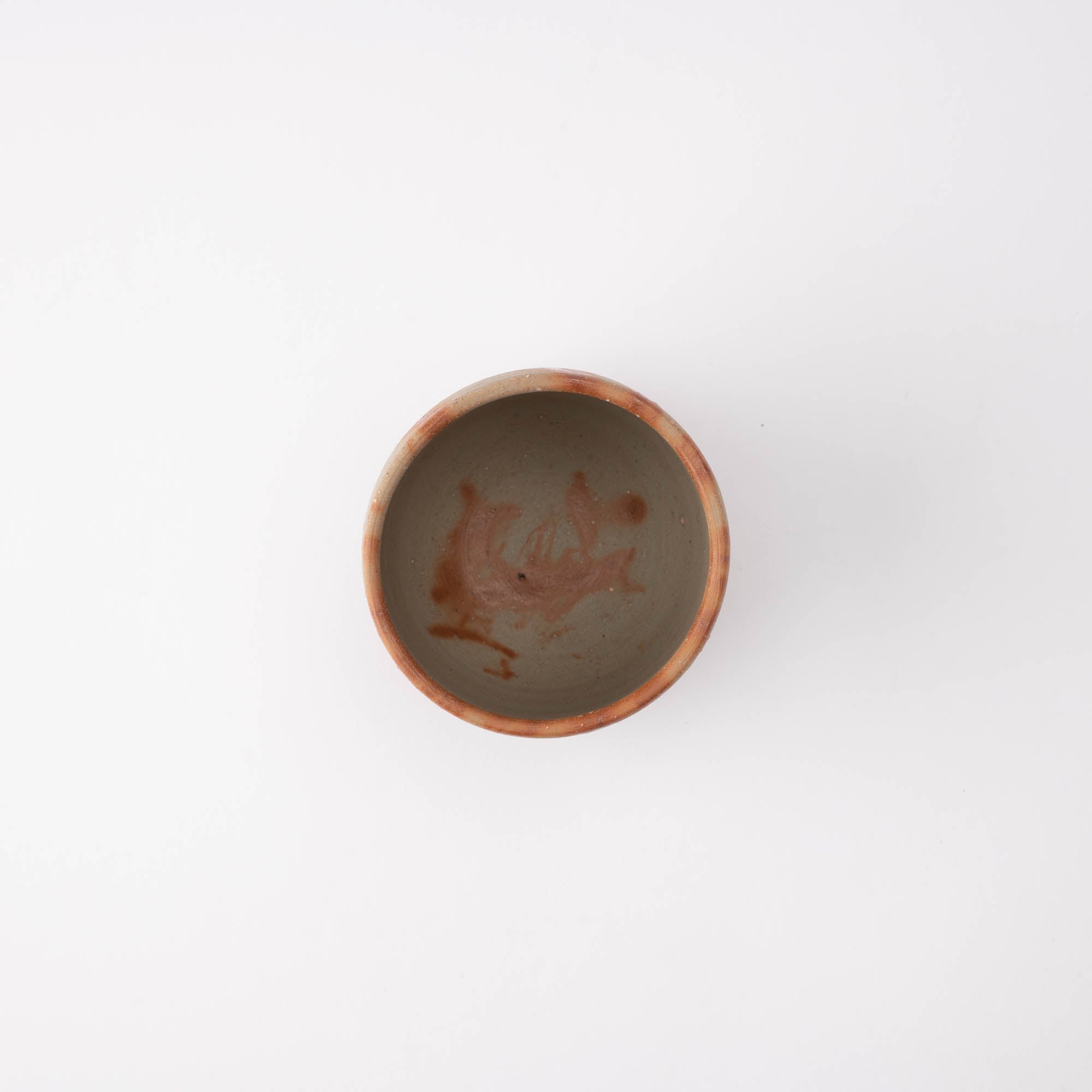
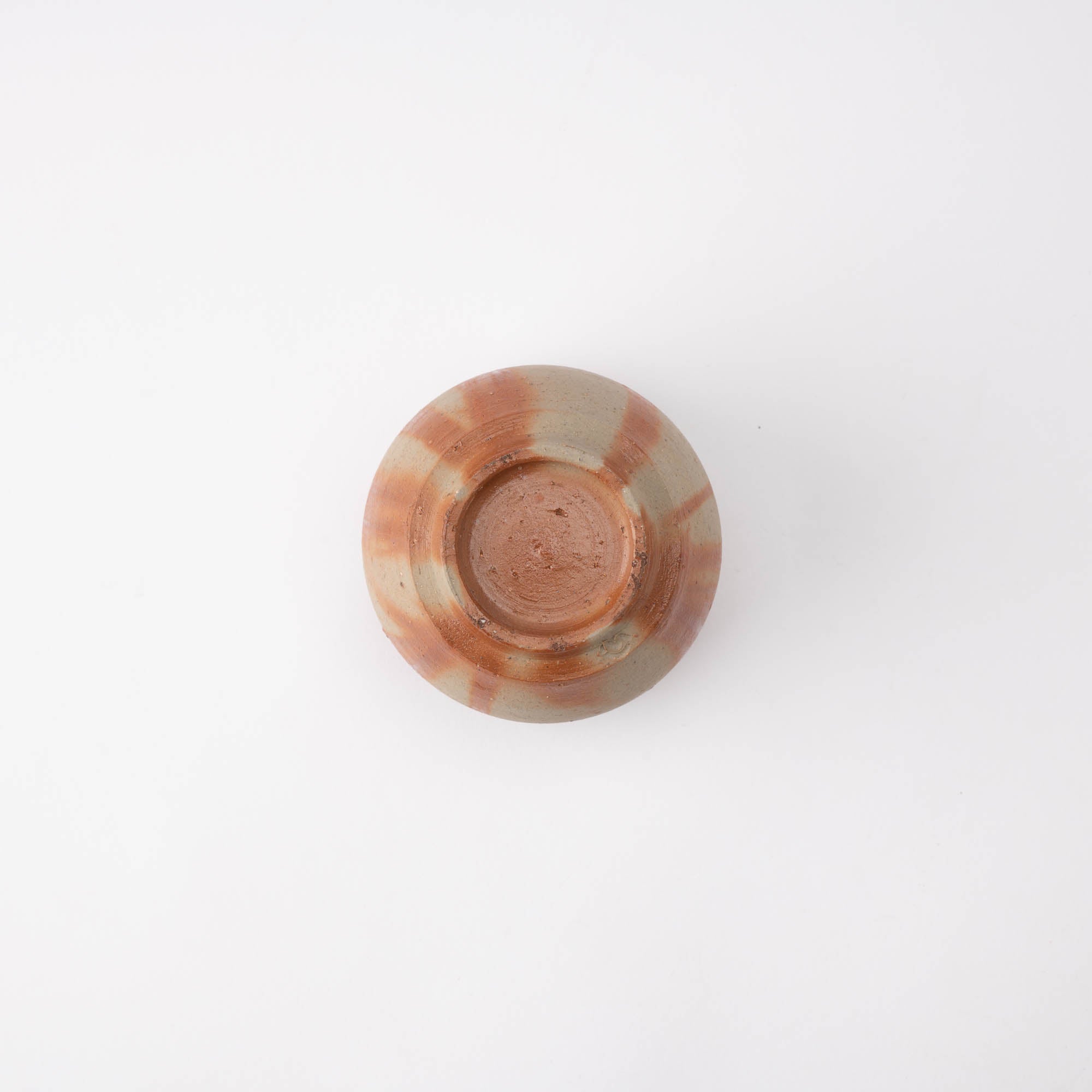
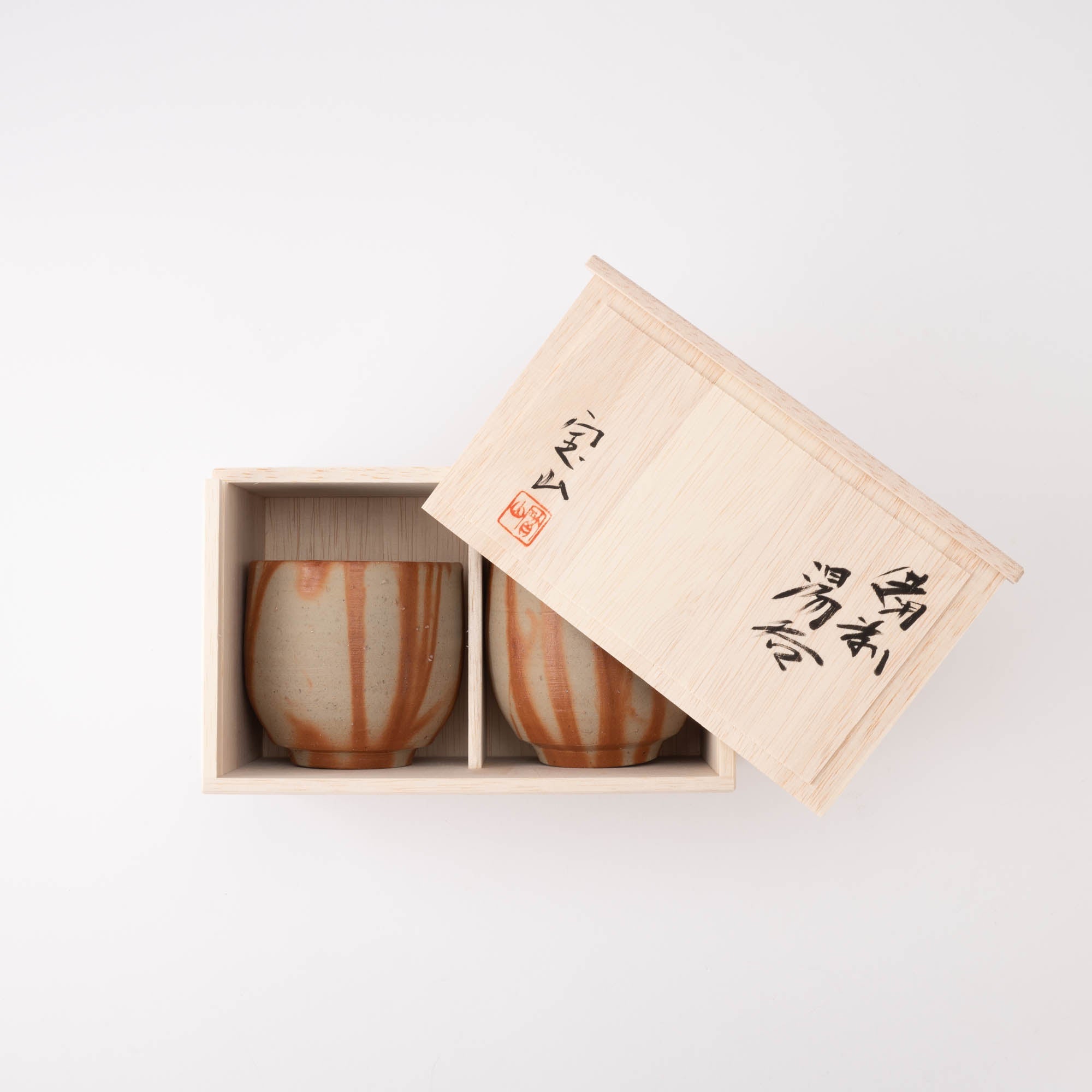
Hidasuki Yunomi Japanese Teacup Pair
Estimated Shipping Widget will be displayed here!
This is a Bizen ware teacup with a pattern called "hidasuki." The coarse texture, colors, and patterns produced by the kiln's flames are a remarkable example of Bizen Ware, "the art of clay and fire."
The "hidasuki" pattern is created when the work is wrapped in straw, placed in a kiln with a cover called a "saya," and fired in a location away from direct heat. It becomes light brown in color throughout, with scarlet areas where the straw is wrapped. This contrast between vivid colors makes it very popular. Each firing results in a different pattern, making each piece a unique work of art.
DETAILS
| Quantity | 2 cups |
| Size |
D 8.2 cm (3.2 in) x H 7.8 cm (3.1 in) Wooden Box: 11.7 cm (4.6 in) x 18.8 cm (7.4 in) x H 10.2 cm (4 in) |
| Capacity | 200 ml (6.8 fl oz) |
| Material | Stoneware |
| Package Type | Wooden box |
| Microwave | No |
| Dishwasher | No |
Maker / Brand
Hozan Kiln is a long-established Bizen ware kiln. Located in Imbe, Bizen City, the hometown of Bizen ware, Hozan Kiln is directly descended from the Six Families of Bizen ware potters. For centuries, it has continuously produced masterpieces of tea ceremony utensils, sake cups, and art pieces. The oldest-known piece to bear the fan-shaped ceramic stamp, or brand mark, the kiln still uses today is a large jar dating to the 16th century.
Crafts
Bizen ware is a traditional stoneware produced in the Imbe area of Okayama Prefecture. It is one of the oldest ceramics in Japan, and is made using the yakishime technique, in which pieces are fired at high temperatures without glaze to make them durable and water-resistant.
Bizen ware is called "the art of clay and fire" for the exquisite colors and patterns produced by the kiln's flames, and is characterized by its minimalist, wabi sabi design.
Choose options

















Estimated Shipping Widget will be displayed here!
Yunomi Japanese Teacups
Yunomi are a kind of vertical, cylindrical teacup. They are typically used for casual tea times. Because of the large capacity of a yunomi, the area where the tea touches the air is small, so the tea does not get cold easily. They are also suitable for when you want to drink a lot of bancha or hojicha. In sushi restaurants, tea is traditionally served in a yunomi.
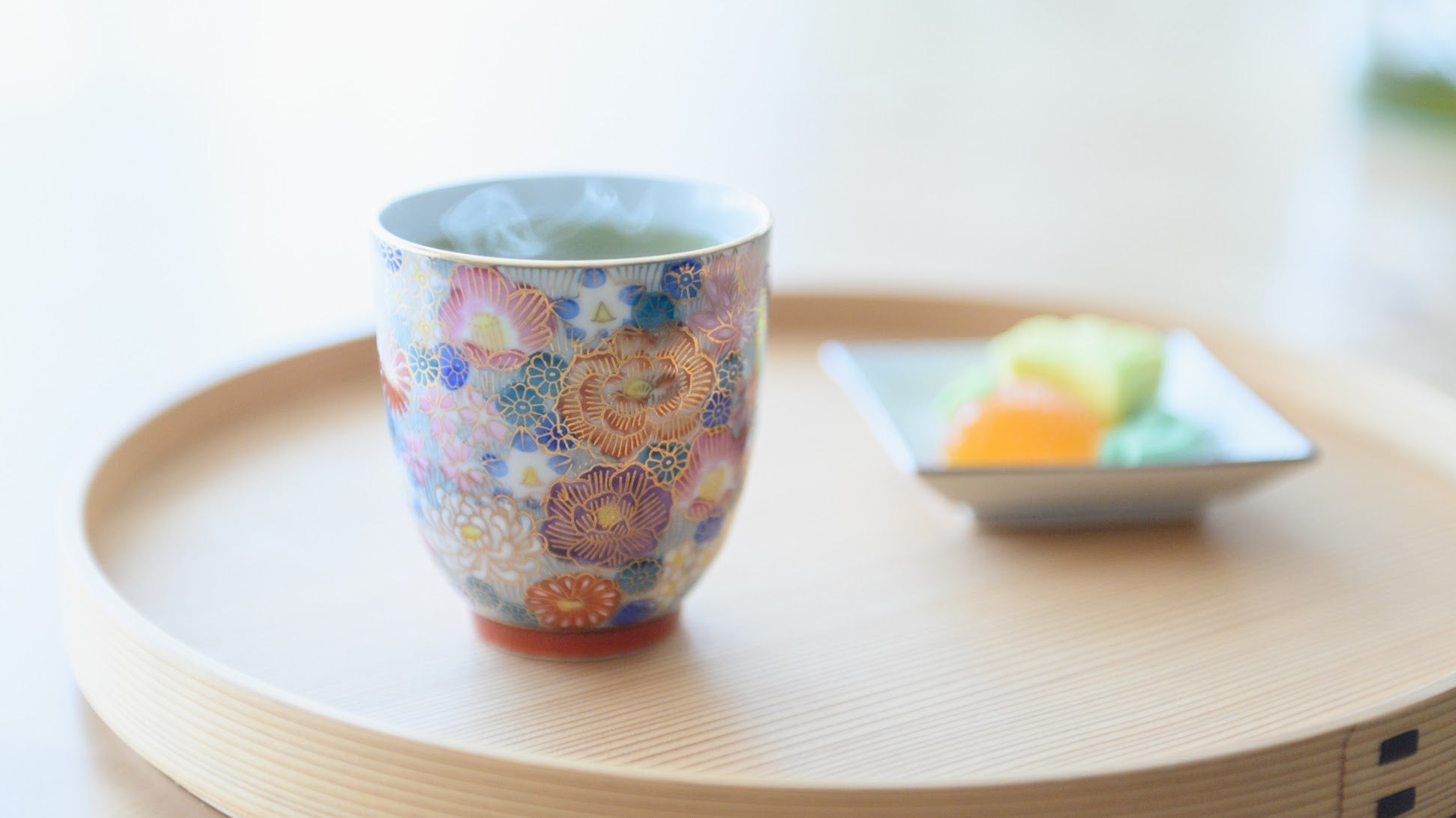
Crafting with Earth and Fire: An Exclusive Look at Kiln Unloading
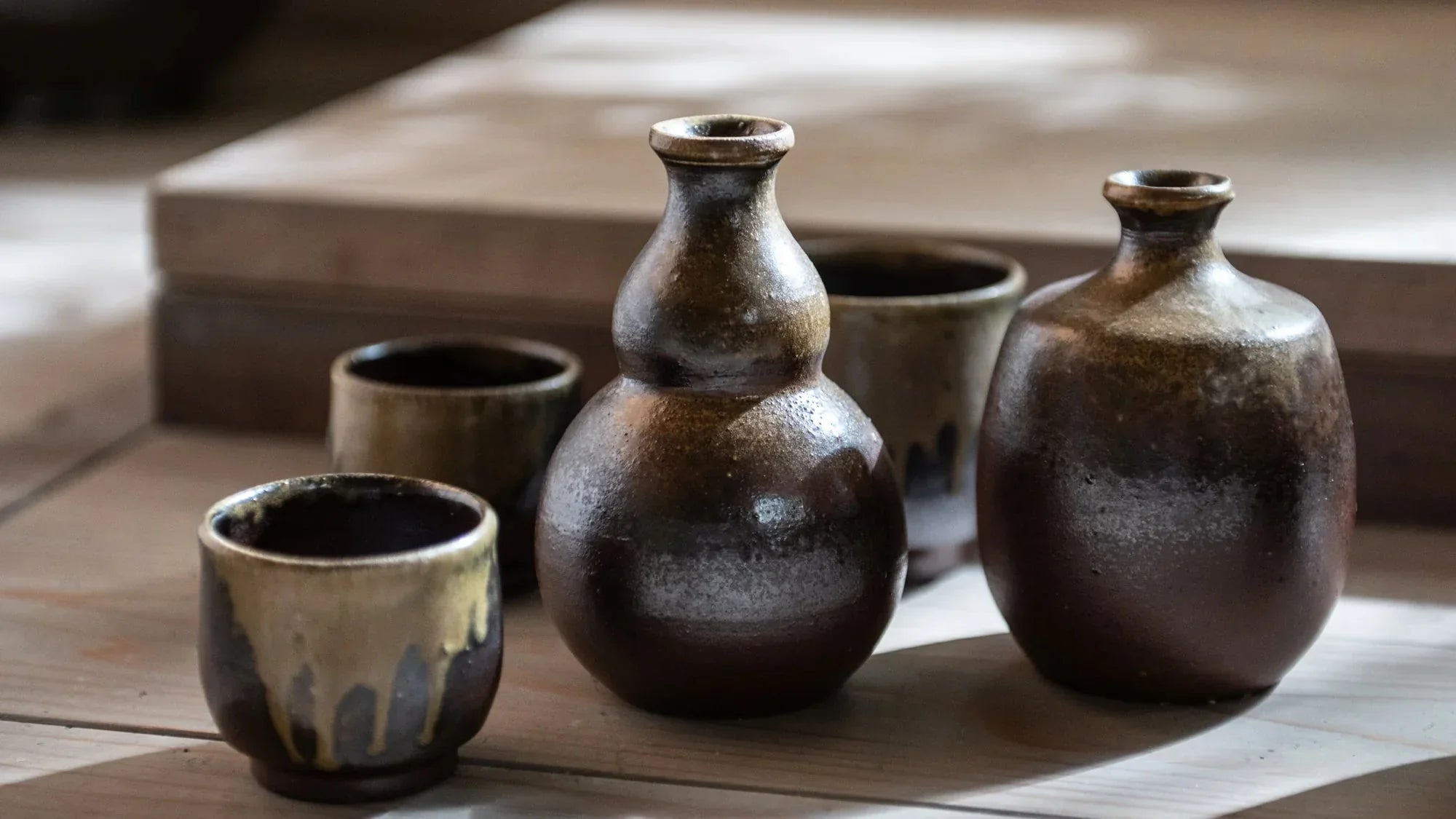
Best Wedding Gifts: 10 Traditional Japanese Items to Delight Every Couple
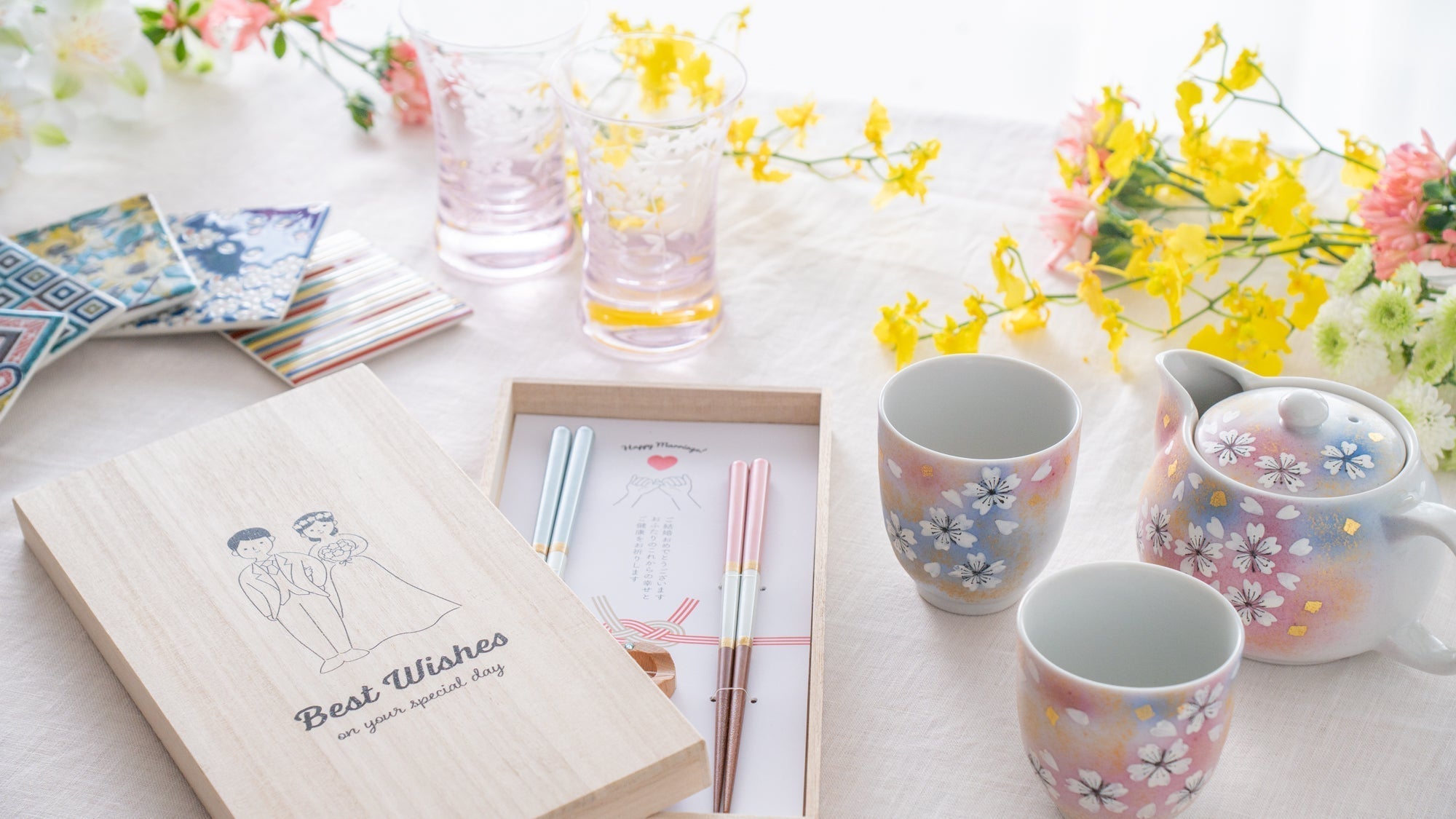
Sushi Dinner in Autumn Colors from Hozan Kiln
